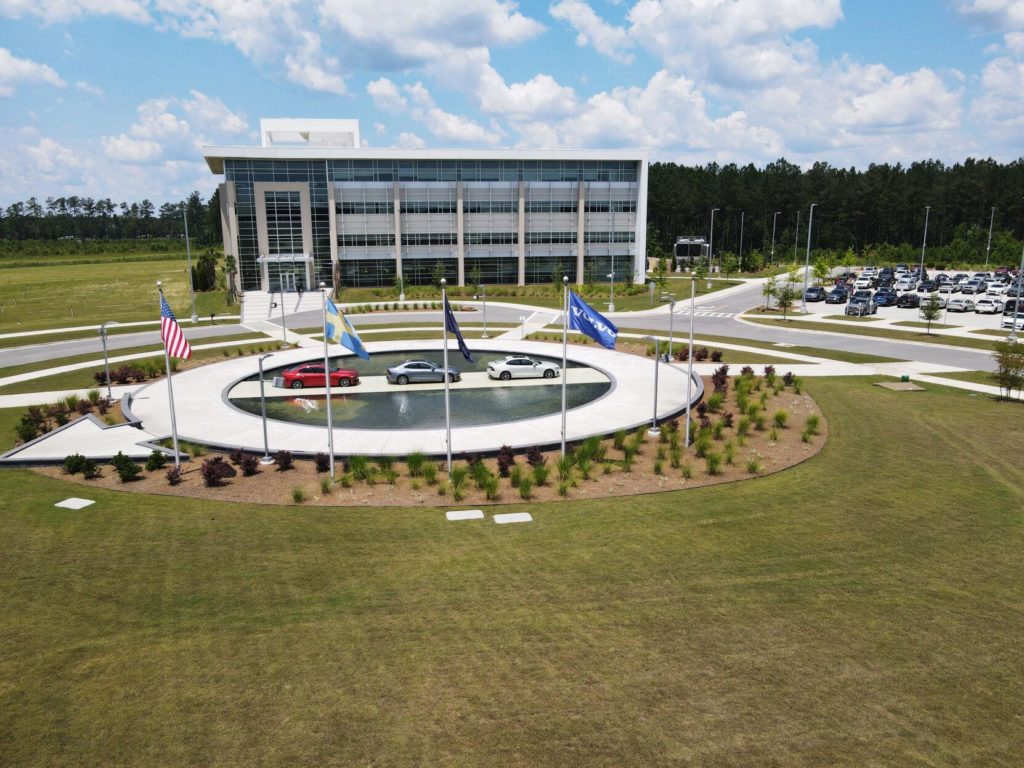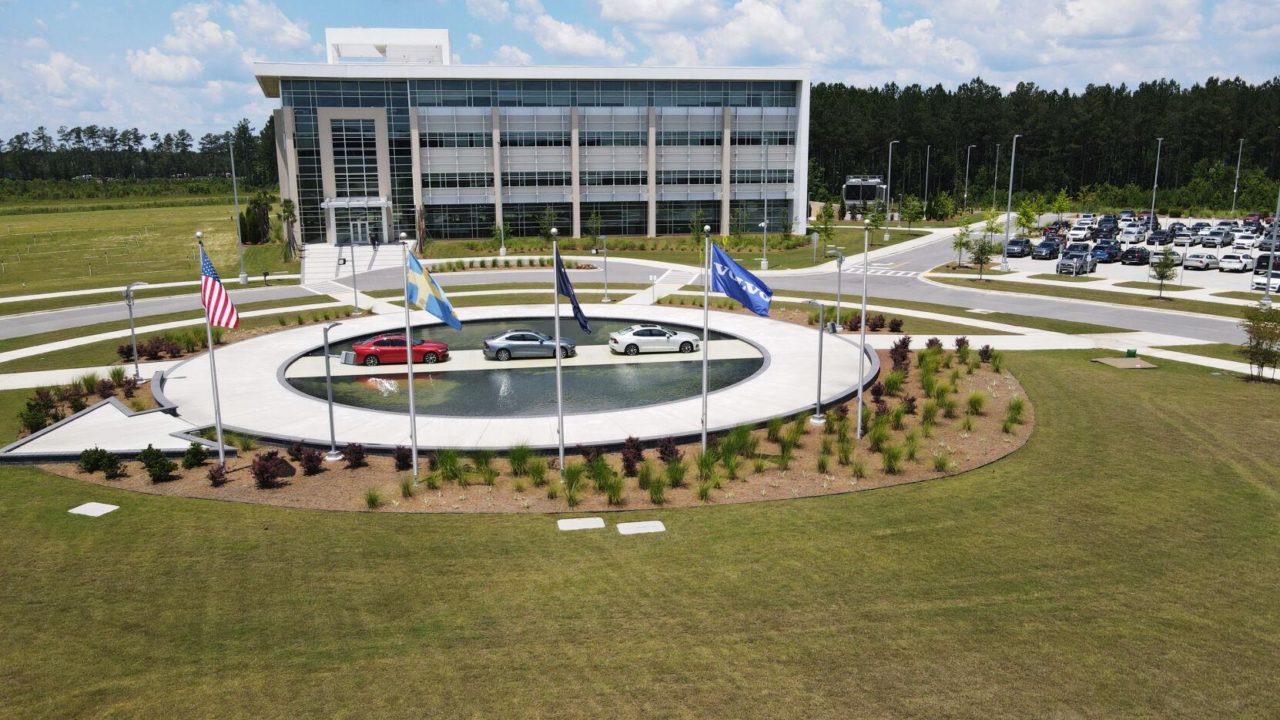Volvo opens SC training ‘University’ with electric lineup on the horizon

IDGEVILLE — The Volvo Cars manufacturing campus here will be the first site using technology that will give the automaker’s all-electric vehicles safer autonomous driving capability, company officials said June 23 during an event an addition the Berkeley County plant.
A new publicly funded training center — called Volvo Car University — is part of the carmaker’s shift toward producing an all-electric lineup by 2030, providing a central location for technicians, retailers and plant workers to learn about technologies such as the new self-driving feature.
The center — which includes classrooms, meeting spaces and a research and development site — has also created a leadership training program with the Yale School of Management.
“Our electrification strategy is quite advanced — 50 percent (of vehicles) by 2025 and then to 100 percent by 2030,” said Anders Gutafsson, president of Volvo Cars USA. “You cannot just sit and wait for that. You need to be very well prepared, and that’s the reason for this school here.”
The technology that will make its debut at the $1.2 billion South Carolina plant, called LiDAR, will show up first on the Polestar 3 high-performance sport utility vehicle that Volvo will build in South Carolina for its sister brand beginning in 2022.
The next-generation XC90, to be built at the site the following year, will be the first Volvo-branded vehicle to get the new technology. The Ridgeville site currently builds the S60 sedan for the U.S. and European markets.
“LiDAR technology will be safer than any car with just cameras,” said Hakan Samuelsson, president and CEO of Volvo Cars. “We will take another step really securing Volvo as the safest car on the planet.”
LiDAR, short for “light detection and ranging,” uses millions of pulsed laser lights to accurately detect where objects are by scanning the environment in 3-D and creating a temporary, real-time map without requiring internet connectivity. The technology will be combined with autonomous drive software and cameras for autonomous highway driving initially. It will eventually be available on all Volvo models built on a new production platform that also will debut at the Ridgeville plant.
While the automaker is planning for an all-electric future, Samuelsson said the U.S. lags other countries in providing the charging stations that will be needed to support battery-powered cars. He added that the government should provide incentives to spur production of the devices until the market for electric vehicles stabilizes.
“Relying on the market in such a situation, that’s too slow the first two or three years,” he said.
Samuelsson said the global computer chip shortage has eased somewhat but the company still doesn’t have a reliable supply beyond a couple of weeks at a time. The shortage had caused the Ridgeville plant to temporarily halt production of S60s, but the site was back to full capacity starting last week.
“I ask every week what will we build the rest of the year,” Samuelsson said.
The training center was among more than $200 million worth of incentives state and local governments promised Volvo, which is headquartered in Sweden and owned by China’s Geely Holding Group, when the automaker picked South Carolina in 2015 for its U.S. manufacturing headquarters. Berkeley County agreed to pay $4 million toward the $10 million cost with the state picking up the rest of the tab.
Samuelsson said the Ridgeville factory has helped improve Volvo’s standing with U.S. consumers.
“We are seen as locals. We are not seen as selling cars from Europe,” he said. That has translated to a nearly 100 percent increase in U.S. sales over the past five years with the goal of doubling that number again over the next half-decade as more consumers start to adopt electric vehicles.
“We believe that is going to secure a better business, better profitability for us, because being a sustainable brand is making us more premium,” Samuelsson said.

